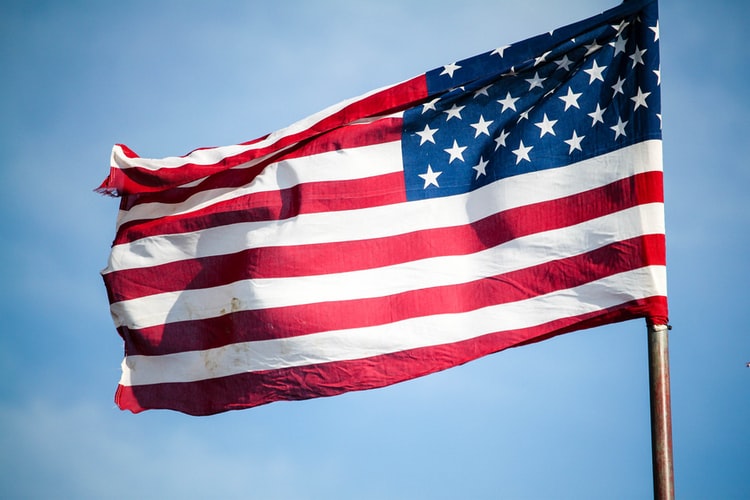Should We Stand for the Pledge?
The majority of American schools have made it traditional for young students to rise for the Pledge of Allegiance and recite daily.
Carlee Dittemore https://unsplash.com/photos/hilY8xCS_Pw
The Pledge of Allegiance was written in 1892 by Francis Bellamy, who was a socialist minister.
November 20, 2020
For a long time, there has been controversy over whether or not to stand for the Pledge of Allegiance.
Many see it as an ode to the victory America had gained over the many years of history while others see it as standing for something that isn’t true at all. As a result, some individuals voice out the oppression they receive daily with various acts of protest.
“I believe that people should stand for it if they believe in what it stands for. Personally, I don’t believe we have achieved freedom and justice for all in this country so I do not stand for it anymore,” Angela Gonzales said, who is a student in George Ranch as this will be her final year attending the high school. Angela, who is of Hispanic Heritage, has experienced multiple acts of racism throughout her life.
The pledge of allegiance has been widely and traditionally practiced in most schools where kids in elementary school through high school recite the words obtained in the pledge. But nowadays kids in schools have no clue what they’re reciting. It has become rote; words spoken without thinking of the meaning.
Other individuals stand for the pledge to commemorate the brave soldiers who have fought to make America free. In addition, some students see it as a sign of respect for members who recently or are still currently serving in the military.
“I think standing for the Pledge of Allegiance is crucial to our daily lives of being American as we get to honor our loved ones,” Madeline Roberts said, who has a family member that is currently a retired veteran. Most individuals who have grown up in a military background have been taught to say the pledge to demonstrate loyalty for America and its soldiers.
“I feel like everyone should stand for the pledge because we are honoring what our forefathers did and honoring the people that died fighting got our country,” senior Skylar Brandt said.
The pledge is recited by all individuals of different religious backgrounds, but a person has the right to not recite the Pledge of Allegiance, as no actions will be taken against them.
One of the situations that can be correlated to individuals having the choice to not stand for the pledge was the controversy that revolved around Colin Kaepernick , who was the quarterback for the San Francisco 49ers. He knelt during the National anthem to call attention to the issue of injustice and police brutality. Both the kneeling during the national anthem and the refusal to stand for the pledge have been ways for people to protest for the justice they continue to fight for daily.
Many other individuals have also decided to kneel in support and to stand against the racial inequality towards people of color. The summer of 2020 saw people protest the deaths of George Floyd, Trayvon Martin, Breonna Taylor, Elijah McClain, and the list goes further on. The protests demonstrate how society is taking a stand against the many aspects of racial inequality and their desire to see justice for all.




